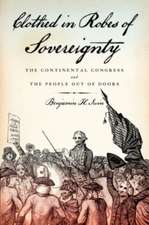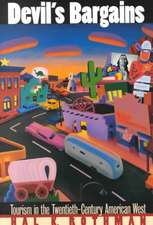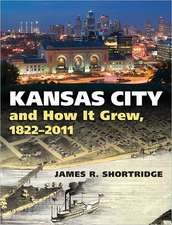Dust Bowl Migrants in the American Imagination: Rural America
Autor Charles J. Shindoen Limba Engleză Hardback – 31 dec 1996
Preț: 396.65 lei
Nou
Puncte Express: 595
Preț estimativ în valută:
75.91€ • 78.96$ • 62.67£
75.91€ • 78.96$ • 62.67£
Carte tipărită la comandă
Livrare economică 15-29 aprilie
Preluare comenzi: 021 569.72.76
Specificații
ISBN-13: 9780700608102
ISBN-10: 0700608109
Pagini: 272
Dimensiuni: 164 x 239 x 24 mm
Greutate: 0.53 kg
Ediția:New.
Editura: University Press of Kansas
Seria Rural America
ISBN-10: 0700608109
Pagini: 272
Dimensiuni: 164 x 239 x 24 mm
Greutate: 0.53 kg
Ediția:New.
Editura: University Press of Kansas
Seria Rural America
Textul de pe ultima copertă
More than any other event of the 1930s, the migration of thousands of jobless and dispossessed Americans from the Dust Bowl states to the "promised land" of California evokes the hardships and despair of the Great Depression. In this innovative new study, Charles Shindo shows how public memory of that migration has been dominated not by academic historians but by a handful of artists and reformers. Shindo examines the images of Dust Bowl migrants in photography, fiction, film, and song and marks off the various distances between these representations and the realities of migrant lives. He shows how photographer Dorothea Lange, novelist John Steinbeck, Hollywood filmmaker John Ford, and folksinger Woody Guthrie, as well as folklorists and government reformers, sympathized with the migrants' plight but also appropriated that experience to further their own aesthetic and ideological agendas. Lange's "Migrant Mother" and other photos, the powerful story of the Joad family in Steinbeck's The Grapes of Wrath, Ford's poetic cinematic adaptation of that novel, and the gritty plainfolk lyrics of Guthrie's Dust Bowl Ballads have all combined to portray the migrants as down-and-out victims of the Great Depression. Shindo, however, contends that these artists failed to fully grasp the essence of "Okie" culture and were more concerned with promoting views and agendas that the migrants themselves might have found inaccurate or unappealing.




















